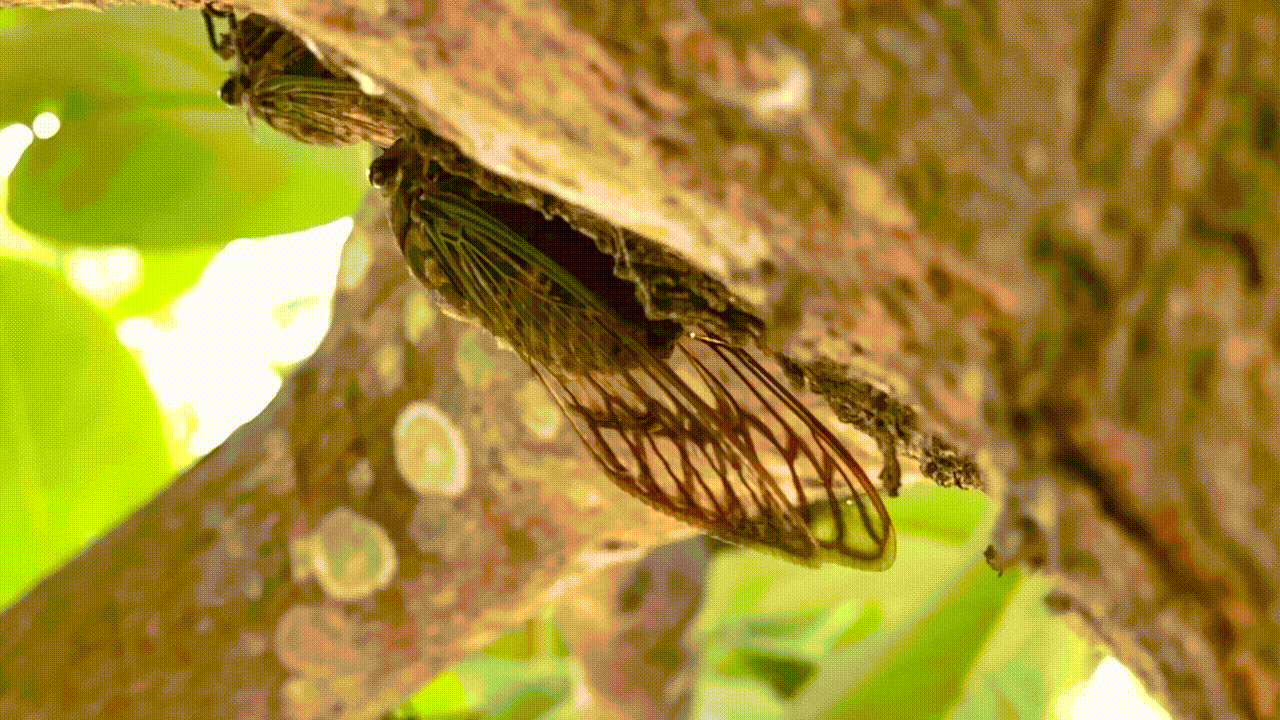Ecology
Invasive 'ManhattAnts' Are Taking Over New York City and Spreading Quickly
Since appearing on Manhattan in 2011, the species has become one of the island's most dominant ants, and scientists formally identified it this year
One Year After a Devastating Fire, Lahaina's 151-Year-Old Banyan Tree Is Healing
Arborists didn't know if the historic tree would survive, but they've been working to give it the best possible odds
As Hurricanes Bear Down and Get Stronger, Can a $34 Billion Plan Save Texas?
A massive project prompted by the wildly destructive Hurricane Ike offers a solutions-based preview of our climate future
Static Electricity May Help Butterflies and Moths Pick Up Pollen
A new study measured the insects' electrostatic charges and used computer simulations to show that the charges were strong enough to lift pollen
Why Are Giant, Ancient Tropical Trees Dying?
Scientists from an international project are racing to figure out what kills these anchors of their ecosystems—before it's too late to save them
The Quest to Resurrect a Lost Ecosystem in Siberia
A father-and-son team of scientists are trying to revive ancient grasslands by reintroducing large grazers
Don't Call Wombats Heroes, but Their Burrows Do Provide Food, Water and Shelter for Other Animals
During Australia’s devastating bushfires in 2019 and 2020, misinformation spread about wombats welcoming animals into their underground homes—but a new study finds a kernel of truth in the viral story
Dice Snakes Fake Their Own Deaths With Gory, Poop-Filled Theatrics
When attacked by a predator, the reptiles can play dead with convincing detail, employing blood and feces for the show
Has the Term 'Keystone Species' Lost Its Meaning?
More than 50 years after Bob Paine’s experiment with starfish, hundreds of species have been pronounced “keystones” in their ecosystems
An Ancient Maya Practice Could Be the Key to Growing Vegetables on Mars
Researchers are exploring whether intercropping—a technique of growing different types of plants in close proximity to one another—could be the secret to agriculture on the Red Planet
What Happens When Animals Cross the Road
Our byways are an unnatural incursion into the natural world, especially when they’re allowed to fall into disuse. Meet a roadkill scientist and a journalist tracking how roads mess with nature—and what we can do about it
Hibernating Bumblebee Queens Can Survive Underwater for Up to a Week, Study Finds
Researchers discovered the insects’ unexpected superpower during an accidental laboratory snafu
The English Farmers Who Harvest Rhubarb by Candlelight
The secret to the world’s sweetest rhubarb? Sealed sheds, total darkness and a little old-fashioned flair
Male Bonobos, Close Human Relatives Long Thought to Be Peaceful, Are Actually Quite Aggressive, Study Suggests
The new research found bonobos were three times more likely than chimpanzees to commit an act of physical aggression
Up to a Trillion Cicadas Could Emerge in the U.S. Later This Spring
Two specific broods will appear together for the first time since 1803
Florida Fish Are Mysteriously Dying After 'Spinning and Whirling,' and Scientists Can't Explain It
The abnormal behavior has raised special concerns about the endangered smalltooth sawfish, an odd-looking ray with chainsaw-like teeth, as 28 of them have died
Shells From Captain Cook's Final Voyage Were Rescued From a Dumpster
Long presumed lost, the collection of rare shells is now on display in England
Whales That Go Through Menopause Live Longer and May Help Care for Grandchildren
Alongside humans, five species of toothed whales are known to experience menopause. A new study suggests they evolved the trait to increase their lifespan
Don't Look Up: Cicadas Produce High-Speed Jets of Urine
The noisy, winged insects produce pee the same way that much larger animals do, according to a new study
'Strange' New Prehistoric Bird Discovered in China and Named for David Attenborough
The proto-bird lived some 120 million years ago and did not have teeth—a trait more similar to birds of today than to birds of its time—sharpening scientists' understanding of avian evolution
Page 1 of 29
:focal(700x527:701x528)/https://tf-cmsv2-smithsonianmag-media.s3.amazonaws.com/filer_public/a3/d0/a3d08cac-bae2-4d68-85c7-4ec4f0b603f4/lasius_emarginatus_casent0172762_head_1.jpg)
:focal(2604x1910:2605x1911)/https://tf-cmsv2-smithsonianmag-media.s3.amazonaws.com/filer_public/1d/bc/1dbc42bd-99f4-442d-9da9-0dc511839800/gettyimages-2165158303.jpg)
:focal(700x527:701x528)/https://tf-cmsv2-smithsonianmag-media.s3.amazonaws.com/filer_public/a2/ae/a2ae7e8e-edaf-424f-ad53-454a8e340d5e/smithmag-podcast-s02-ep13-hurricane-article.jpg)
:focal(3024x2016:3025x2017)/https://tf-cmsv2-smithsonianmag-media.s3.amazonaws.com/filer_public/df/cb/dfcbaa9d-9fc7-4124-a123-8173a5dce198/gettyimages-1243935899.jpg)
:focal(2464x1643:2465x1644)/https://tf-cmsv2-smithsonianmag-media.s3.amazonaws.com/filer_public/79/2b/792bd175-4567-4c8f-b685-777ca304e1ef/gettyimages-500241484.jpg)
:focal(800x602:801x603)/https://tf-cmsv2-smithsonianmag-media.s3.amazonaws.com/filer_public/5a/5b/5a5bc419-f87d-45f4-9933-8b678752167a/gettyimages-625197012_web.jpg)
:focal(1000x705:1001x706)/https://tf-cmsv2-smithsonianmag-media.s3.amazonaws.com/filer_public/f8/fd/f8fd73a1-d543-4846-9f41-955996eee6bf/gyae034_fig1.jpeg)
:focal(874x575:875x576)/https://tf-cmsv2-smithsonianmag-media.s3.amazonaws.com/filer_public/e9/05/e905e153-411a-4ea7-b9f1-94a18f954fac/rsbl20240058f001.jpg)
:focal(800x602:801x603)/https://tf-cmsv2-smithsonianmag-media.s3.amazonaws.com/filer_public/0d/83/0d83e9ef-a8a6-4e91-bd00-72b8764e7440/gettyimages-1176797379_web.jpg)
:focal(904x706:905x707)/https://tf-cmsv2-smithsonianmag-media.s3.amazonaws.com/filer_public/54/ec/54ec6205-f359-454f-be12-6cd6e3b0171e/journalpone0302149g004.png)
:focal(700x527:701x528)/https://tf-cmsv2-smithsonianmag-media.s3.amazonaws.com/filer_public/e3/3d/e33dd2fd-dd50-408c-ad69-4537fef45412/smithmag-podcast-s02-ep05-roads-article.jpg)
:focal(1194x921:1195x922)/https://tf-cmsv2-smithsonianmag-media.s3.amazonaws.com/filer_public/c2/f1/c2f1bfd0-7ad5-4a48-8265-45f8f45901a9/common_eastern_bumble_bee_in_central_park_25454.jpg)
:focal(2860x1907:2861x1908)/https://tf-cmsv2-smithsonianmag-media.s3.amazonaws.com/filer_public/05/37/0537d8a1-37ed-41b2-9b9d-964c59535230/gettyimages-1237797266.jpg)
:focal(1061x707:1062x708)/https://tf-cmsv2-smithsonianmag-media.s3.amazonaws.com/filer_public/b7/81/b781df5a-4717-4259-8050-c23a2e393a97/gettyimages-121989311.jpg)
:focal(2567x1711:2568x1712)/https://tf-cmsv2-smithsonianmag-media.s3.amazonaws.com/filer_public/06/d6/06d6edc9-cdfa-4bb9-8caf-afb524852213/gettyimages-1321221953.jpg)
:focal(400x267:401x268)/https://tf-cmsv2-smithsonianmag-media.s3.amazonaws.com/filer_public/af/41/af413d12-40fb-47c2-b475-1cd918646a74/sawfish-necropsy.png)
:focal(2518x1894:2519x1895)/https://tf-cmsv2-smithsonianmag-media.s3.amazonaws.com/filer_public/d5/e0/d5e04319-c816-41d5-bc03-06957fc7e58f/image532ja.jpeg)
:focal(1929x1258:1930x1259)/https://tf-cmsv2-smithsonianmag-media.s3.amazonaws.com/filer_public/fc/b2/fcb2f4a1-dccc-4314-b739-e5e5b993f77b/gettyimages-547332154.jpg)

:focal(391x361:392x362)/https://tf-cmsv2-smithsonianmag-media.s3.amazonaws.com/filer_public/57/01/5701e0ab-09fb-4524-80a3-67afd4b92318/1709658044-image-19.webp)